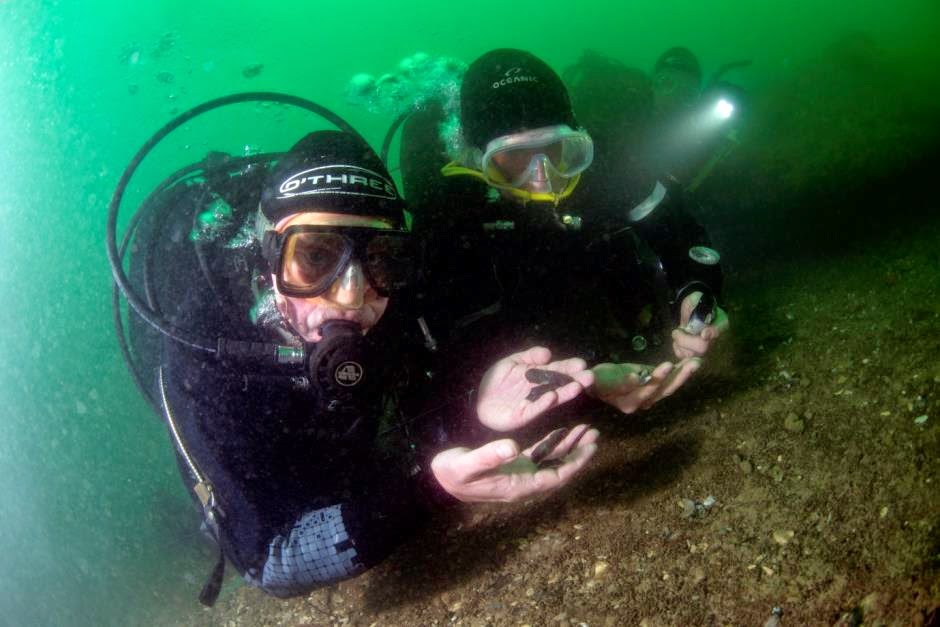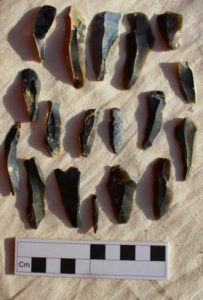The first common market
Long before we had mountains of grain and vast lakes of wine accumulating to excess across the continent our ancestors had worked out that the best entrepreneurial way to stay ahead was through trade with as wide a market as possible. A study to be published in Science this week describes the first evidence for grain traded across Europe 8000 years ago, 2000 years before the accepted beginning of farming in Britain.

The team of scientists, which includes Dr Richard Bates from the School of Earth and Environmental Sciences at the University of St Andrews, Prof. Vincent Gaffney from the University of Bradford and the Universities of Warwick, Birmingham and Southampton studied two submerged sites at the extreme ends of Britain, off the shores of the Isle of Wight and Orkney, to discover sediment sequences that contained wheat grains. In the southern site, einkorn DNA (an early form of farmed wheat) was collected from material that had previously formed a land surface which was later sealed by sediment and submerged by rising sea levels. When the grain was dropped, the Mesolithic people were leading a hunter-gatherer existence as farming had only spread as far as Southern Europe. As the einkorn was not native to Britain, in order for it to have reached this site, there must have been contact between the people of Briton and the Neolithic farmers. This contact could even have been across narrow land bridges over what is now the English Channel and southern North Sea.

(The Maritime Trust)
The novel ancient sediment DNA analysis used in the study could unlock many other secrets of long lost areas, especially those surrounding our coasts. These areas were once at the heart of different societies but the locations make their study particularly challenging. For St Andrews, the work continues in the Orkney Isles around the iconic Neolithic landscapes where the team will use these techniques to continue investigating the land of the ancestors who constructed the monuments at these sites. [press release]
Science article: Sedimentary DNA from a submerged site reveals wheat in the British Isles 8,000 years ago (DOI: 10.1126/science.1261278).
BB News: Scientists find evidence of wheat in UK 8,000 years ago